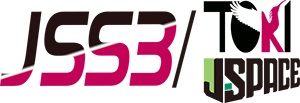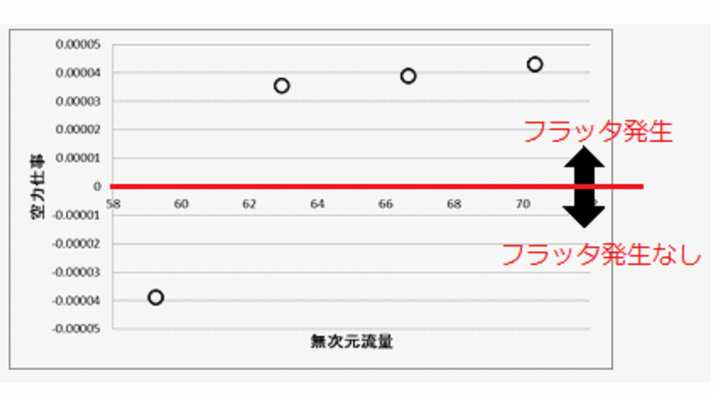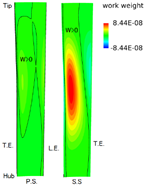Numerical Analyses of LPT flutter
JAXA Supercomputer System Annual Report April 2016-March 2017
Report Number: R16E0025
- Responsible Representative: Toshio Nishizawa(Aeronautical Technology Directorate, aFJR project team)
- Contact Information: Junichi Kazawa(kazawa@chofu.jaxa.jp)
- Members: Junichi Kazawa, Toshio Nishizawa, Yasuo Horiguchi
- Subject Category: Aviation(Aircraft engine)
Abstract
The purpose of aFJR project is to advance research on jet engine component technologies so that Japanese manufacturers can join more effectively in international joint-development projects on next-generation jet engines. Regarding LPT flutter, we aim to develop LPT design technology by improving prediction accuracy.
Goal
Please refer ‘aFJR (Advanced Fan Jet Research) project | ECAT – Environment-Conscious Aircraft Technology Program | Aeronautical Technology Directorate‘.
Objective
Please refer ‘aFJR (Advanced Fan Jet Research) project | ECAT – Environment-Conscious Aircraft Technology Program | Aeronautical Technology Directorate‘.
References and Links
Please refer ‘aFJR (Advanced Fan Jet Research) project | ECAT – Environment-Conscious Aircraft Technology Program | Aeronautical Technology Directorate‘.
Use of the Supercomputer
Calculations are conducted under the same conditions as tests.
Necessity of the Supercomputer
Although the calculation scale is not large, since there are many test conditions and calculation parameters and the number of cases is large, it is necessary to implement multiple cases at the same time in supercomputers.
Achievements of the Year
Flutter analysis was carried out under the same conditions as those conducted last year through this fiscal year. The flutter generation point was compared with the test results, and it was confirmed that prediction accuracy of calculations was sufficient.
Publications
N/A
Computational Information
- Parallelization Methods: Hybrid Parallelization
- Process Parallelization Methods: MPI
- Thread Parallelization Methods: Automatic Parallelization
- Number of Processes: 24
- Number of Threads per Process: 4
- Number of Nodes Used: 24
- Elapsed Time per Case (Hours): 50
- Number of Cases: 75
Resources Used
Total Amount of Virtual Cost(Yen): 2,540,442
Breakdown List by Resources
| System Name | Amount of Core Time(core x hours) | Virtual Cost(Yen) |
|---|---|---|
| SORA-MA | 827,235.85 | 1,358,720 |
| SORA-PP | 132,389.46 | 1,130,341 |
| SORA-LM | 0.00 | 0 |
| SORA-TPP | 0.00 | 0 |
| File System Name | Storage assigned(GiB) | Virtual Cost(Yen) |
|---|---|---|
| /home | 67.62 | 637 |
| /data | 3,899.66 | 36,785 |
| /ltmp | 1,479.64 | 13,957 |
| Archiving System Name | Storage used(TiB) | Virtual Cost(Yen) |
|---|---|---|
| J-SPACE | 0.00 | 0 |
Note: Virtual Cost=amount of cost, using the unit price list of JAXA Facility Utilization program(2016)
JAXA Supercomputer System Annual Report April 2016-March 2017




